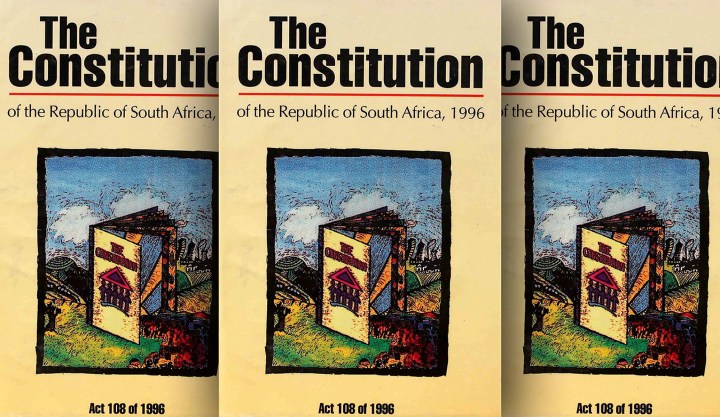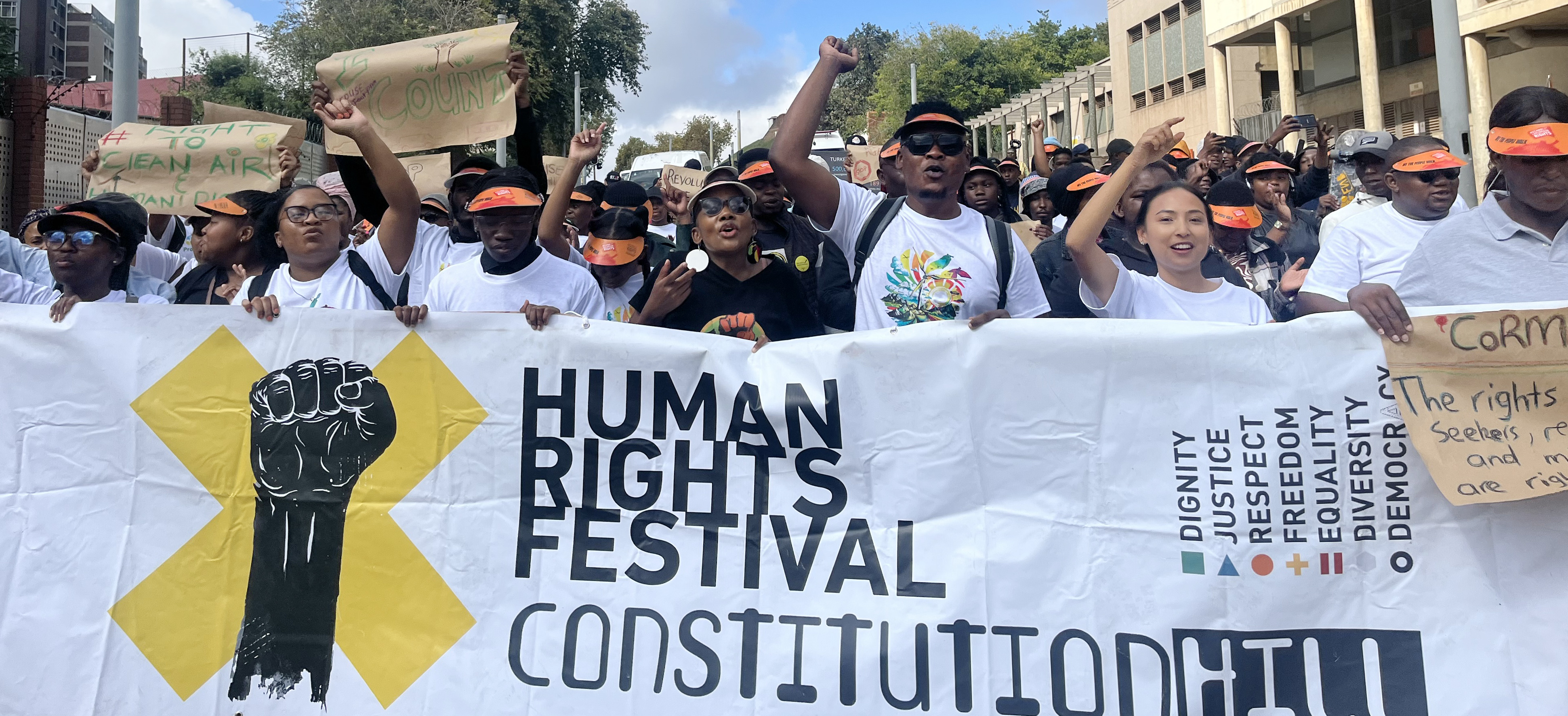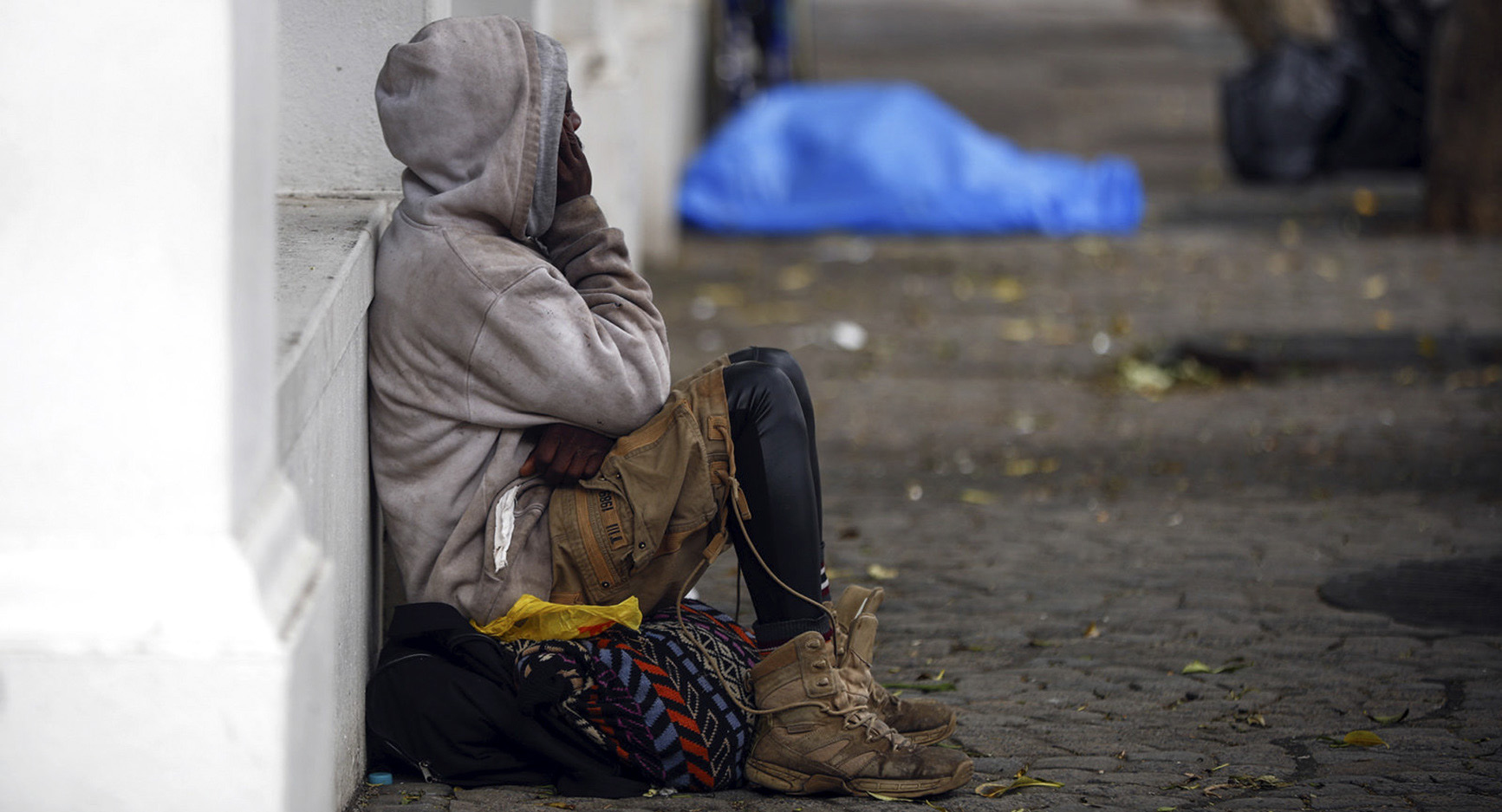TUESDAY EDITORIAL
We need to seize our power through the Constitution – it is our recourse in the face of injustice

The activist spirit of the Human Rights Festival contrasted with the officious and legalistic posture of the National Conference on the Constitution. They need to work together to be effective.
‘A culture which places some emphasis on communality and on the interdependence of the members of a community. It recognises a person’s status as a human being, entitled to unconditional respect, dignity, value and acceptance from the members of the community such a person happens to be part of. It also entails the converse, however.
“The person has a corresponding duty to give the same respect, dignity, value and acceptance to each member of that community. More importantly, it regulates the exercise of rights by the emphasis it lays on sharing and co-responsibility and the mutual enjoyment of rights by all,” said former Chief Justice Pius Langa in the seminal S v Makwanyane judgment in 1995.
Human and socioeconomic rights guardianship are not only the responsibility of the state; we have seen the atrocities and are living in the aftermath of what happens when the state makes decisions about who is and isn’t entitled to these rights.
Last week saw the commemoration of two very important milestones in democratic South Africa – the National Conference on the Constitution and Human Rights Day. It was a bumper edition, if you will, of spotlighting the importance of human and socioeconomic rights, but also a measure of our investment and understanding of these rights.

The Human Rights Festival was held in the Constitutional Hill precinct. (Photo: Mark Heywood)
For context and posterity it is worth noting that our current Constitution was not always there and that before the one we have, which is based on democratic principles after 1994, we had three other constitutions; the 1910 constitution which set up the Union of South Africa, the 1961 constitution which set up the Republic of South Africa and the 1983 constitution which created the tricameral Parliament. None of the previous three constitutions recognised the human rights of all who live in South Africa.
The discussions meant to reflect on the gains and attainment of the Constitution’s imperatives felt a little hollow and out of touch without the voices and ideas of ordinary South Africans.
The drafters of the Bill of Rights and the Constitution were revolutionary and transformative thinkers and activists such as Pius Langa, Albertina Sisulu, Albie Sachs, Kader Asmal, Leon Wessels, Ray Alexander, Dullah Omar, Frene Ginwala, Andrew Mlangeni and Raymond Suttner.
This calibre of drafters had a profound appreciation for the value of all human life and a track record of tireless work towards a progressive society and dedication to shaping a country whose fruits some of them they may not necessarily live to savour but had a determination that others would. But most importantly, ordinary South Africans also participated in the making of the Constitution, making the process transparent and people-centred.
Read more in Daily Maverick: Enlist today: Why SA’s human rights movement needs you now
The inclusion of people from the previous government was deliberate and showed a commitment to a country built on inclusion not exclusion, reflecting the Constitution’s preamble, which states: “We, the people of South Africa… Believe that South Africa belongs to all who live in it, united in our diversity.”
What was notable at the national constitutional conference, held at the Gallagher Convention Centre, was who was and wasn’t there, with the majority of delegates being past and present government officials, academics and very few ordinary citizens or even activists. The discussions meant to reflect on the gains and attainment of the Constitution’s imperatives felt a little hollow and out of touch without the voices and ideas of ordinary South Africans.

A homeless man sits against the walls of Parliament in Cape Town. (Photo: EPA-EFE / Nic Bothma)
While on the other side of town, in the Constitution Hill precinct in the Joburg CBD, the Human Rights Festival took place, with mainly activists, artists and ordinary people who were not only reflecting but sharing the work they were doing in their communities and charting new paths towards guaranteeing that all who live in South Africa enjoy their full rights. This, to me, showed more of an active and energised way of bringing the constitutional values to life.
Active participation required
As we feel the anxiety and strain of all that is wrong with the country, we have to reach for our Constitution and enforce the rights guaranteed within it because those rights, while guaranteed formally and on paper, require our active participation. Our constitutional rights are not the preserve of government officials and academics. They give us recourse in the face of injustice.
This is why the theme of this year’s Human Rights Festival was #SeizeThePower, bringing agency and reminding us that the reason we are not still languishing in the putrid injustice of apartheid is because people stood together against an unjust government and committed to building a more just country not for narrow individual gains but for the good of all. It is therefore possible for us to also reach beyond ourselves and stand in solidarity against the current injustices.
Read more in Daily Maverick: South Africans in a rage – can we work together and overcome the trauma within us?
The activist spirit that is still very much alive as demonstrated at the Human Rights Festival vs the officious and legalistic posture of the constitutional conference, are not mutually exclusive but need to meet each other and work together to be effective. The drafters of our Constitution were very much ordinary South Africans who did not come from privilege but a common sense of justice for all.
We may well have more Pius Langas, Leon Wessels and Frene Ginwalas among us, people who have the moral and ideological courage to shape a South Africa aspiring to the ideals of dignity, equality and human solidarity. DM/MC



















Comments - Please login in order to comment.